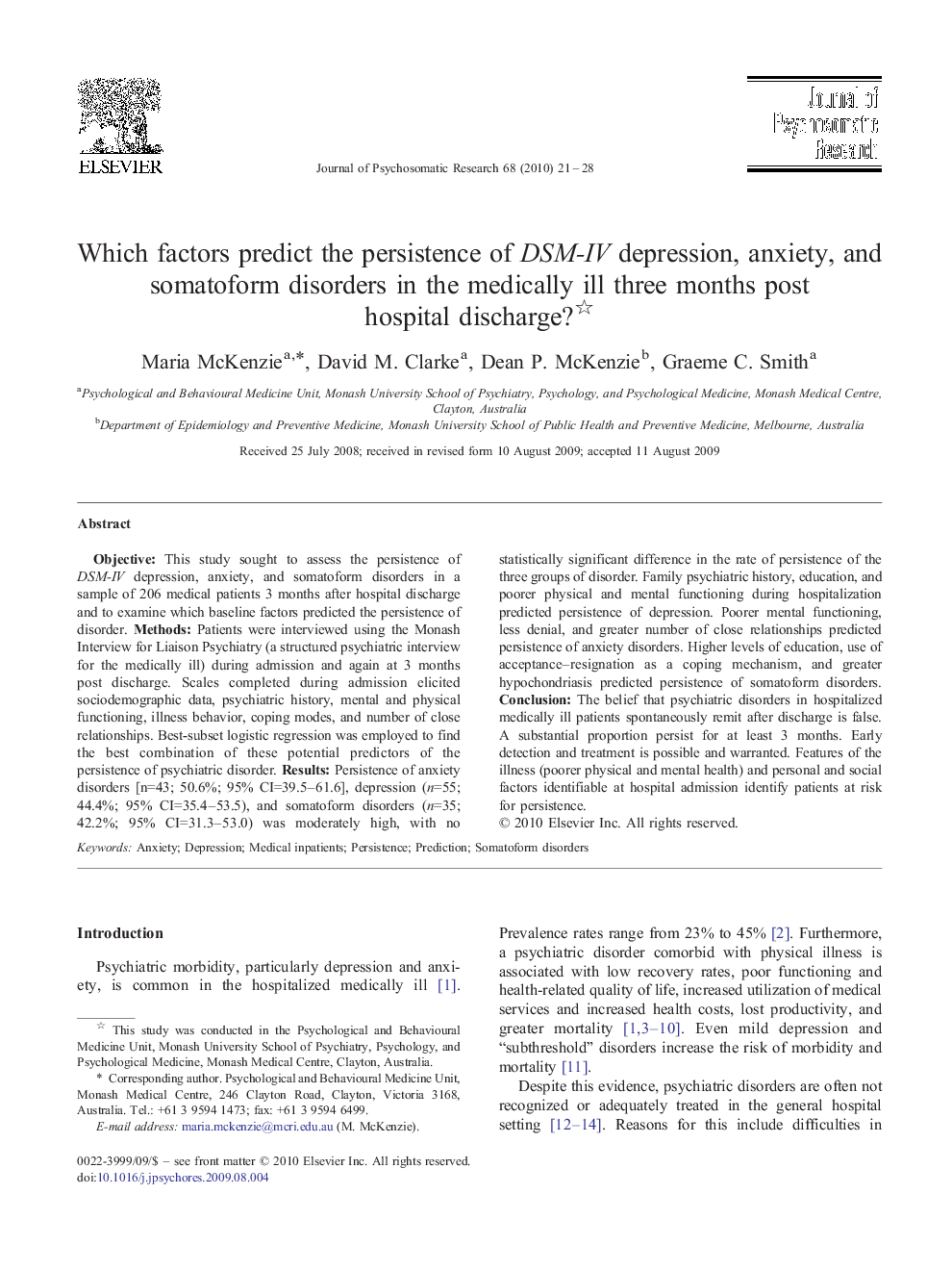| Article ID | Journal | Published Year | Pages | File Type |
|---|---|---|---|---|
| 950264 | Journal of Psychosomatic Research | 2010 | 8 Pages |
ObjectiveThis study sought to assess the persistence of DSM-IV depression, anxiety, and somatoform disorders in a sample of 206 medical patients 3 months after hospital discharge and to examine which baseline factors predicted the persistence of disorder.MethodsPatients were interviewed using the Monash Interview for Liaison Psychiatry (a structured psychiatric interview for the medically ill) during admission and again at 3 months post discharge. Scales completed during admission elicited sociodemographic data, psychiatric history, mental and physical functioning, illness behavior, coping modes, and number of close relationships. Best-subset logistic regression was employed to find the best combination of these potential predictors of the persistence of psychiatric disorder.ResultsPersistence of anxiety disorders [n=43; 50.6%; 95% CI=39.5–61.6], depression (n=55; 44.4%; 95% CI=35.4–53.5), and somatoform disorders (n=35; 42.2%; 95% CI=31.3–53.0) was moderately high, with no statistically significant difference in the rate of persistence of the three groups of disorder. Family psychiatric history, education, and poorer physical and mental functioning during hospitalization predicted persistence of depression. Poorer mental functioning, less denial, and greater number of close relationships predicted persistence of anxiety disorders. Higher levels of education, use of acceptance–resignation as a coping mechanism, and greater hypochondriasis predicted persistence of somatoform disorders.ConclusionThe belief that psychiatric disorders in hospitalized medically ill patients spontaneously remit after discharge is false. A substantial proportion persist for at least 3 months. Early detection and treatment is possible and warranted. Features of the illness (poorer physical and mental health) and personal and social factors identifiable at hospital admission identify patients at risk for persistence.
